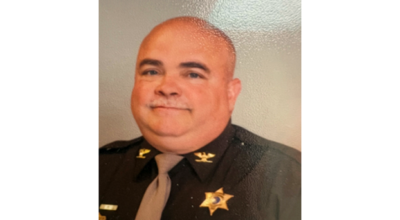State awards $675,000 in grants to county courts
Published 6:07 pm Tuesday, September 19, 2017
The Michigan State Court Administrative Office awarded the following grants to the Cass County Courts, effective Oct. 1, 2017 to Sept. 30, 2018:
• A $100,000 grant for the Family Treatment Court (Michigan Drug Court Grant Program grant), operated by Cass County Probate/Family Court
• A $175,000 grant for the Swift and Sure Sanctions Probation Program (SSSPP grant) operated by Cass County Circuit Court
• A $65,000 grant for the Adult Treatment Court and Sobriety Court/Hybrid DWI/Drug Court (Michigan Drug Court Grant Program grant)
• A $70,000 grant for the Adult Treatment Court and Sobriety Court/Hybrid DWI Drug Court (Edward Byrne Memorial Justice Assistance Grant), operated by Cass County District Court
• A $265,000 grant for the Berrien/Cass Regional Mental Health Court (MMHCGP-Regional), operated by Berrien County’s Unified Trial Courts and Cass County’s Circuit Court
The theory behind problem-solving courts is that an addict’s involvement with the legal system is a symptom of the disease of addiction. Treating the symptom with only incarceration will not cure the offenders of their disease.
As a result, when offenders are discharged from their jail or prison stay, they return to their old habits. Judges have called this the “Revolving Door” effect.
To break the cycle, problem-solving courts allow addicted offenders the opportunity to address their addictions through a program that involves close judicial supervision, treatment, frequent and random drug and alcohol testing, and other community services tailored to each participant’s unique circumstances.
Extensive follow-up analysis shows that participants in these courts are far less likely to reoffend. Problem-solving courts have received better outcomes than incarceration alone.
The state grant award announcements coincide with the observance of National Recovery Month, which is hosted every September to educate Americans that substance use treatment and mental health services can enable those with a mental and/or substance use disorder to live a healthy and rewarding life.
The observance reinforces the positive message that behavioral health is essential to overall health, prevention works, treatment is effective and people can and do recover.
“Continued funding for problem-solving courts is evidence of a changing perspective embracing treatment for, instead of simply jailing, persons struggling with alcohol and/or drug addiction who are involved in the court system,” said Cass County Chief Judge Susan L. Dobrich, who created and oversees Cass County’s Family Treatment Court,
The most recent Michigan Supreme Court Problem-Solving Court Report, “Solving Problems, Saving Lives,” shows that:
• Graduates of Michigan drug courts are two times less likely to commit another offense after two years
• Graduates of Michigan sobriety courts are more than three times less likely to commit another offense after two years
• Unemployment among adult circuit drug court graduates was slashed by 85 percent and dropped by 75 percent among sobriety court graduates






